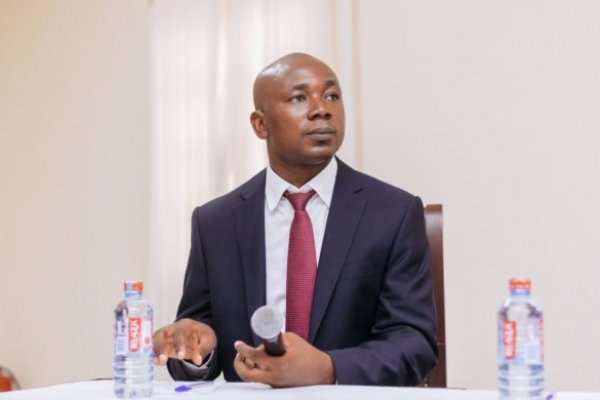Professor Godfred Bokpin, an Economics professor at the University of Ghana, contends that Ghana currently lacks a coherent tax policy.
According to him, the actions taken by various governments in the past two decades could be characterized more as acts of robbery than the implementation of a well-thought-out tax strategy.
Professor Bokpin further asserts that the private sector has experienced limited growth over the last 20 years, attributing this stagnation to the government’s failure to establish an effective and comprehensive tax regime.
“You see that in state and quasi-state institutions that have been expanding across the lengths and breadths of this country largely, you look at the size, the employment size of these state-owned enterprises, they have increased significantly in the last 20 years. You don’t see the same growth happening in the pure private sector.
“So that’s what we have been doing. That is not tax policy that is robbery.”
Professor Godfred Bokpin

Professor Bokpin therefore argued that the country has created a financially distressed society.
“Then again, that is just one level. If you look at personal income tax, other consumption-based taxes, and the rest of them, what we are doing as a country is creating a financially distressed society where just a few people will be able to get to the top. You may find something like this in some other countries probably in terms of effective marginal tax but in those countries, the state is very efficient in the delivery of public services; water, education, electricity, and free moves with quantity and quality.”
Professor Godfred Bokpin
He pinned the years of lacking growth in the private sector to the austerity measure Ghana’s government has imposed through taxes.
“So when you look at the statistics, over the years, you look at the private sector you don’t see expansion going on much. And it is not record science. You cannot be doing things in austerity year in and year out and you check Ghana’s budget effectively from 1996 coming, the first two years of the budget are full of austerity measures. Now the idea is that it is very difficult to pursue inclusive growth and austerity at the same time.”
Professor Godfred Bokpin
He argued that the tradeoff for the austerity tax regimes has been growth.
Ghana’s Rebound From COVID
Furthermore, he illuminated that Ghana’s rebound from COVID has been slow compared to its peers. According to him, that was largely due to poor local policies even though international events like the Russian-Ukraine war made an impact.

“If you look at it also, from the budget this government has presented also, you will see that, Ghana‘s structural, regional, aspirational, among others though COVID affected all of us but looking at the data, they are having a better rebound. They have been a bit consistent and higher than that of Ghana. That is also a reflection of the extent of the impact of the COVID and the Russian-Ukraine war.
“That is also a result of the poor local policy weaknesses. So economies of much stronger resilience are better to withstand those shocks better and therefore their recoveries turn out to be much faster in the case of Ghana you can see how others probably have a V-shape and others have a U-shape but ours is lying a bit flat.”
Professor Godfred Bokpin
The Professor underscored the inadequacy of the growth forecast for 2024, highlighting that the government anticipates an insufficient rebound in the critical sub-sectors of the economy capable of generating employment. Specifically, the projected non-oil growth in 2024 is deemed insufficient to uplift millions of Ghanaians from poverty and address economic inequalities.
Professor Godfred Bokpin emphasized that the economy is not expanding significantly within job-intensive sub-sectors due to the simultaneous imposition of costs by fiscal consolidation measures. Consequently, attempting to pursue immediate growth alongside the current fiscal consolidation approach poses significant challenges.
He also cautioned against overly politicizing the issues, urging the country to seek enduring solutions to its economic challenges.
READ ALSO: National Christian Forum To Scrutinize Impact Of Politics In Ghana



















